The world of French horse-racing is currently undergoing a revolution. Yet, oddly, no one is talking about it. This is a mistake, for the changes that are taking place do not just concern the world of racing but also highlight some fundamental changes that are having a major impact on French capitalism.
The economics of horse racing is being shaken up thanks to a huge influx of capital from Qatar and other Gulf states and an accelerated deregulation of racing designed to siphon off easy money and encourage more online betting, even at the risk of encouraging more gambling addiction. These are the main findings of an investigation carried out by Mediapart with the help of racing journalist Guy de La Brosse, who in the past has written frequently on horse racing for the daily newspaper Le Monde and who runs a specialist newsletter La Tribune hippique.
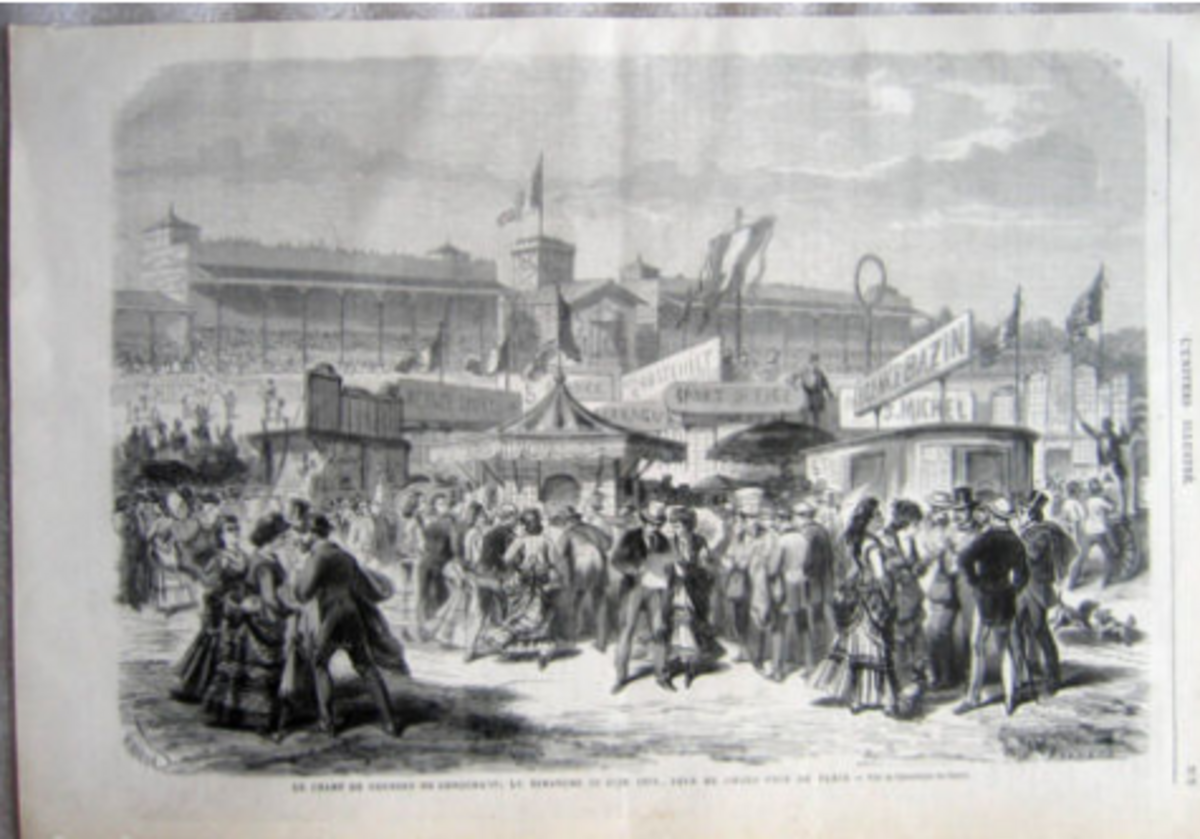
For anyone who knows the upmarket world of horse racing, one thing is very apparent: for a very long time it has been entwined with both the business world and the higher reaches of the state in an incestuous relationship that is the hallmark of French capitalism.
In fact this relationship goes back as far as the mid-19th century and the Second Empire of Napoleon III. Horse racing was the great passion of the emperor’s half-brother Charles-Auguste de Morny, the Duke of Morny, who was briefly the minister of the interior. If France itself owes Morny little, that is not true of the world of horse racing which owes him a great deal. It was he who in 1857 came up with the idea to create the racecourse at Longchamp - where the famous Prix de l'Arc de Triomphe race is still held - as a more welcoming arena than the battered one at the Champ-de-Mars in central Paris that had been in use since 1807. It was Morny, too, who took the initiative to create a renowned race the Grand Prix de Paris (now known as the Prix Gladiateur) and who in 1861 turned Deauville in north-west France into a tourism and spa resort. This town also became known for its horse racing and its casino, and later for its world-famous auction of yearlings.
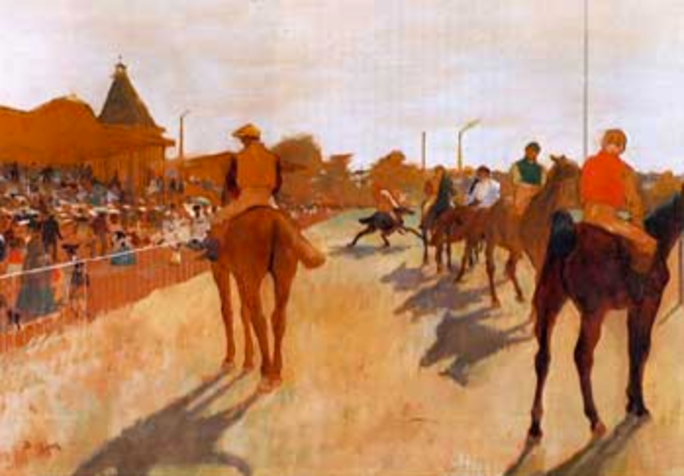
The racing archives tell the story. The first horse races took place in the town on August 14th 1864, at the Duke of Morny's initiative. Featuring in the second race of the day was a horse sporting the duke's colours (pink silks and pink cap) called Gentilhomme which was beaten by a filly called Fidélité.
In between the horse races, the casino and the speculation – both legal and illegal – the duke also became involved with the press to suit his own ends, buying and then selling titles according to how they served his financial or political interests at the time. For the most part these interests were identical to those of Napoleon III. Even before his half-brother was voted in as president of France in 1848, Morny had secretly bought a share in Le Constitutionnel newspaper which in 1852 he sold to a friend, the speculator Jules Mirès, who used the paper to support the empire in a barely-disguised bid to win a share of lucrative public sector contracts. Several years later Morny bought back some of Mirès's newspapers including Le Constitutionnel as well as La Presse and Le Pays when Mirès faced criminal proceedings in the courts over embezzlement charges.
That was how newspapers were treated and traded at this time by the wealthy and friends of the regime,through the throw of dice or at a race course.
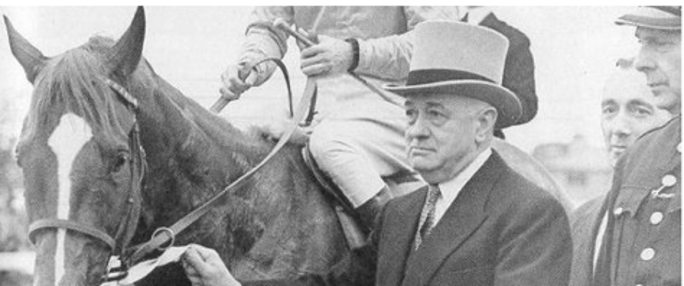
Much later, Marcel Boussac, the businessman best known for owning the fashion house Maison Dior, would continue this tradition throughout the 1950s and 1960s. This head of a textile empire, who was at one time the wealthiest man in Europe, also owned newspapers (L'Aurore and Paris-Turf, for example) and was on first name terms with every leading French politician (except Charles de Gaulle who never forgot the businessman’s closeness to the Nazi occupiers during the Second World War) whom he invited to his hunts. Boussac was also in charge of one of France's biggest horse-breeding enterprises – breeding thoroughbreds for racing – as well as owning the renowned Jardy stud west of Paris and the Saint-Cloud racecourse near the French capital.
From Éric Woerth to Jérôme Cahuzac
The same habits continued through the 2000s, with a constant intermingling of the worlds of money, racing and politics. An example is Édouard Rothschild, former managing partner of the French bank of the same name, of which he is also one of the main shareholders. A personal friend of former president Nicolas Sarkozy with whom he has frequently holidayed at the resort of La Baule in the west of France, Rothschild bought control of the left-wing newspaper Libération at the start of 2005.
He is also passionate about horses and horse riding. He is often in the saddle from morning until evening, takes part in equestrian competitions and owns horses that run under his colours (yellow silks and blue cap). In December 2003 he became president of France Galop, the organisation that runs flat and steeplechasing horse racing in France, a position he held until 2011.
Under the presidency of Nicolas Sarkozy the same close relationship between money, racing and politics existed, with a key figure being former budget minister Éric Woerth. Woerth, together with his wife Florence and her formidable haute couture hats, loved attending race courses to watch the most prestigious races, for example the Prix de l'Arc de Triomphe at Longchamp or the Prix de Diane – sometimes known as the French Oaks – at Chantilly north of Paris where the politician is still mayor. It is, however, a passion that has led to some serious problems. For in addition to being placed under formal investigation in the Bettencourt affair the former minister is also an “assisted witness”- a legal status which implies he was involved in events related to the case though not necessarily suspected of criminal activity – over the sale of state-owned forest land to a horse-racing company at Compiègne, about 80 kilometres north-east of Paris.
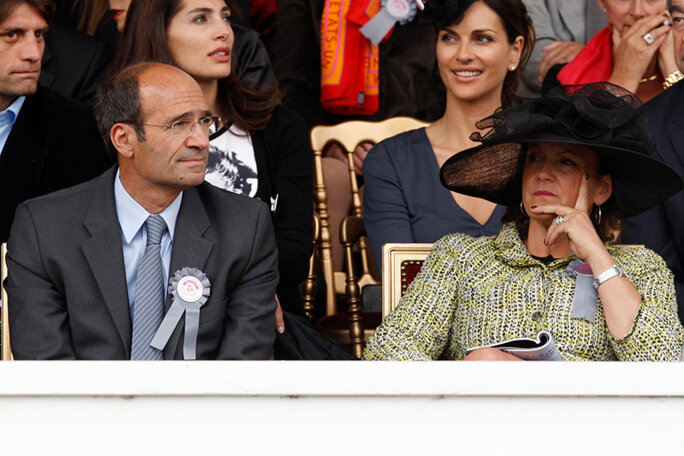
Enlargement : Illustration 4

In brief, the world of horse racing often serves as a mirror in which one sees a reflection of the world of French business. And this is why the great changes that have been affecting the racing world for some time deserve attention. For they also tell us a great deal about the changes that are taking place in French capitalism.
The first major change is the sudden emergence of the Emir of Qatar Sheikh Hamad bin Khalifa Al Thani as a major influence in all aspects of flat racing in France. These races which are reserved solely for the most prestigious and fastest horses – thoroughbreds – have long been subject to unbening rules overseen by France Galop. But it is all in the process of changing.
It was thanks to the Prix de l'Arc de Triomphe, the biggest international flat race with prize money of four million euros for the winners, that everything began to change three years ago. The Lucien Barrière betting and luxury hotels group announced at the time that it no longer wanted to be the sponsor of this prestigious race. France Galop accordingly made contact with a representative of the Emir of Qatar to suggest he took over the sponsorship, an offer that was eventually accepted.

But Qatar laid down conditions. In return for sponsoring the race the Qatari authorities demanded that the programme for race day, which always takes place on the first Sunday of October, be altered to accommodate another race, the Arabian World Cup for pure-bred Arabian horses. This new programme came into force for the 2011 race day and continued again for the 2012 Prix de l'Arc de Triomphe weekend, which as ever attracted a goodly number of the Parisian 'jet-set'. Among those present was the head of the giant oil company Total Christophe de Margerie and the then budget minister Jérôme Cahuzac who did not leave the Emir's side for a moment and who seemed very attentive towards him.
The Emir's representative did not stop there. Over the months he put forward similar deals on many other courses used for flat racing, for example at Deauville, Chantilly, Saint-Cloud and several courses in the south-west of France. In total there are now 56 pure-bred Arabian horse races that Qatar sponsors each year in France, shattering the previously very rigid rules.
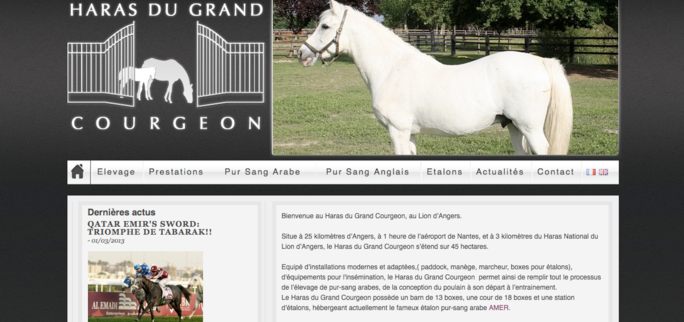
Enlargement : Illustration 6

This development has led to great interest from Saudi Arabia and Dubai whose leaders – and notably Sheikh Mohammed bin Rashid Al Maktoum, the constitutional monarch of Dubai and prime minister of the United Arab Emirates – are very keen on promoting their breed of racehorses. Meanwhile in 2010 the Emir of Qatar also bought the Grand Courgeon stud at Lion d'Angers in the west of France, to raise foals destined to race under his colours.
The little guys pay for the big guys...
This major change in the world of flat racing is taking place for two reasons. There is first of all the clear strategy on the part of Qatar; if the Emir's immense wealth enables him to indulge in considerable expenditure, this spending is also a means, and one that is not hidden, both to maintain his image and to establish contact with leading circles in French business and politics.
In this way, the investments made in French stud farms and racing are part of a wider strategy, which has also seen Qatar buy the French football club Paris Saint-Germain as well as a significant share of the broadcasting rights for the Champions League for its television station Al-Jazeera. Among that station's main shareholders are some of France's best-known companies, including oil giant Total (2% of the capital), media group Lagardère (12.8%), construction firm Vinci (nearly 6%) and media and telecommunications company Vivendi (2%).
For his part former president Nicolas Sarkozy, who has been planning to create an investment fund with businessman and political adviser Alain Minc, was also recently approached by Qatar. According to the Financial Times the Qatar Investment Authority is prepared to put up 250 million euros towards a private equity fund.
Thus Qatar continues to increase its power and influence in France. And after taking over as president François Hollande made sure he received Sheikh Hamad bin Khalifa Al Thani amid great pomp and ceremony at the Elysée on 22nd August 2012.
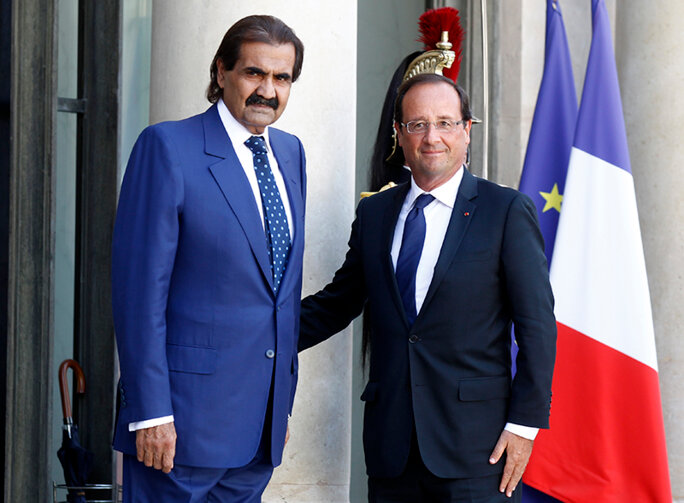
Enlargement : Illustration 7

If Qatar's assault on the world of French horse racing is so spectacular, that is because it suits France Galop and the Pari mutuel urbain (PMU), the French state-controlled betting system which collects the bets placed on horse races. For in the mad logic that has driven the deregulation of online betting France Galop and PMU have just one set of aims in mind: to do all they can so that there are as many races as possible, so that gamblers are given all possible opportunities to place bets and ensure that the betting cash cow makes as much money as possible.
Moreover, virtually all the prize money given to the race winners ends up in the hands of the big international racehorse owners. And this prize money is funded by individual punters placing bets at their local PMU bookie. So in this perverse system it is the small-time gamblers who are funding the large organisations.
The chairman and CEO of PMU Philippe Germond does not hide the fact that for him the ideal system would be one where punters can bet each quarter of an hour, each day, from 10am to midnight. The arrival of a new player, Qatar, who have shattered the old horse racing rules, is therefore seen as a great advantage. The Gulf state may bring in a great deal of money to the racing industry but it also contributes to a wider shake-up of regulations. France Galop backs the same objectives. Its managing director Hubert Monzat is a former special advisor to Éric Woerth who, while working for the minister, had overall responsibility for the legalisation of online gaming.
A system of non-stop betting until the middle of the night already exists to a certain extent. For some time French punters have been able to place their bets on races taking place in Saudi Arabia or South America and which, because of the time difference, are broadcast in France at night. But the management at France Galop and PMU, without caring too much about the risk of gambling addiction, would like flat racing in France to have night meetings too, which is not the case today. Their idea is to follow the lucrative example of the Société d'encouragement du cheval français, which runs harness racing – a very popular sport in France – and which has shown itself to be more far-sighted and self-sufficient by installing lighting in certain courses to allow night-time racing. By following this example PMU hopes to be able to keep its annual turnover at its current level, which is close to 10 billion euros.
QED! Thanks to sovereign funds coming from the Middle East and Anglo-Saxon-style deregulation, French capitalism is undergoing major changes. As, too, is the world of racing. And all this to the apparent great indifference of the two government departments responsible for this area, the finance and agriculture ministries.
Investigation carried out with racing journalist Guy de La Brosse.
--------------------------------------
English version by Michael Streeter


